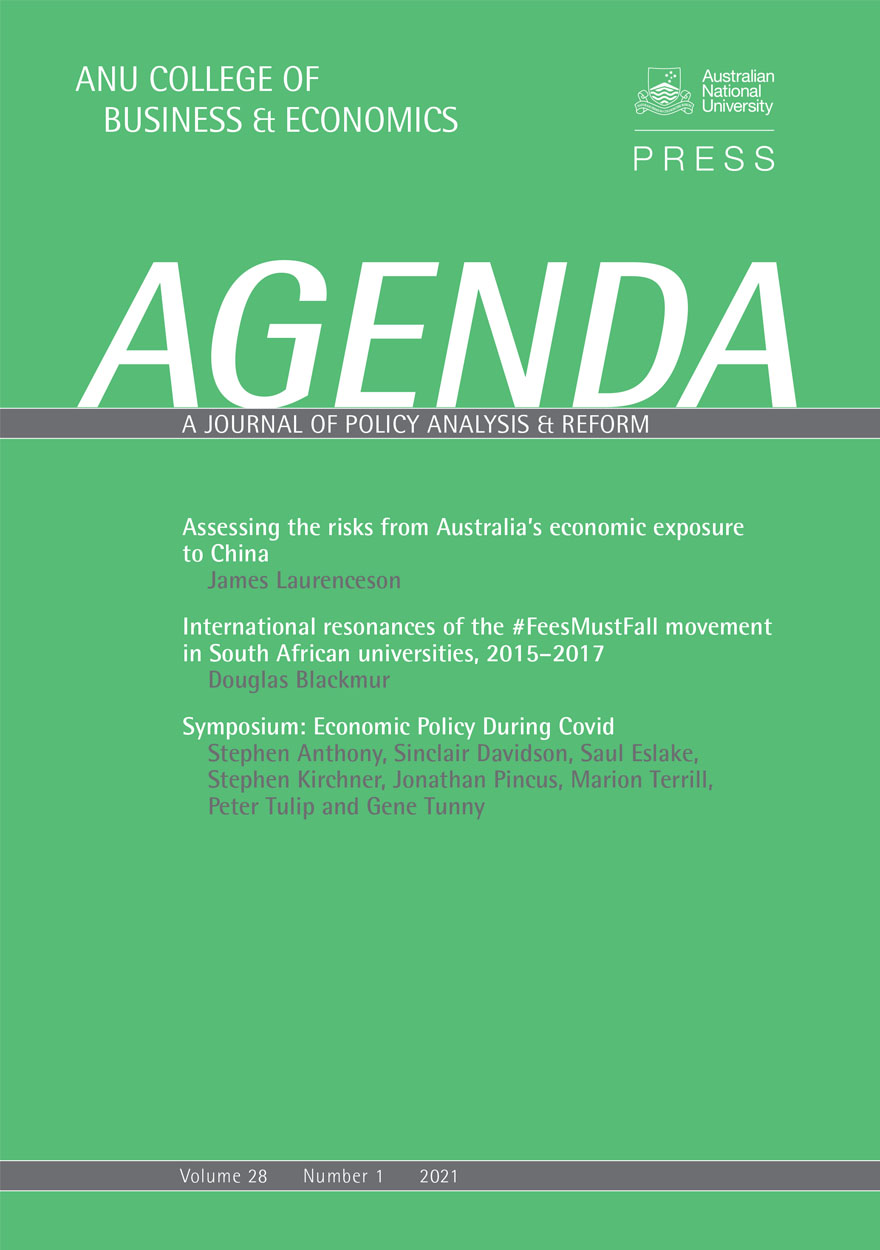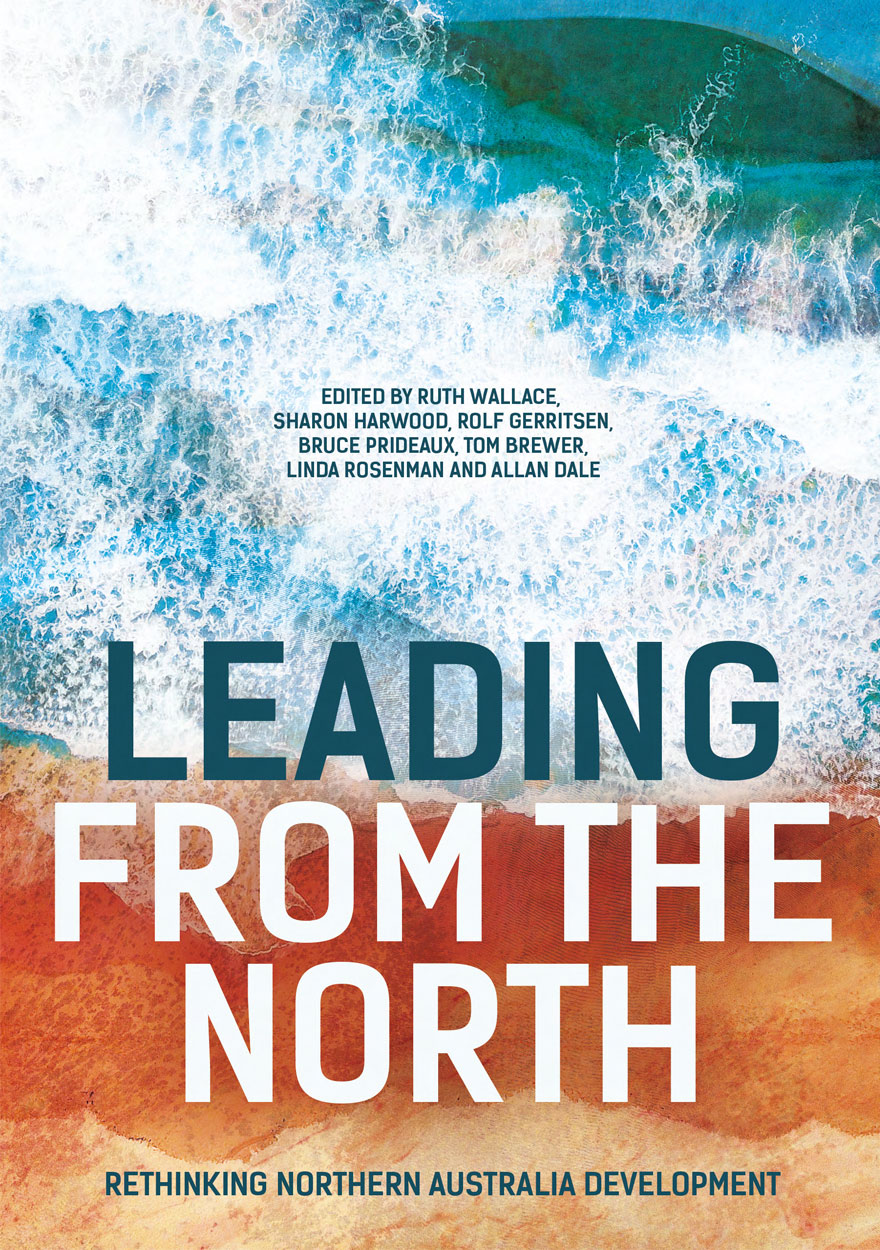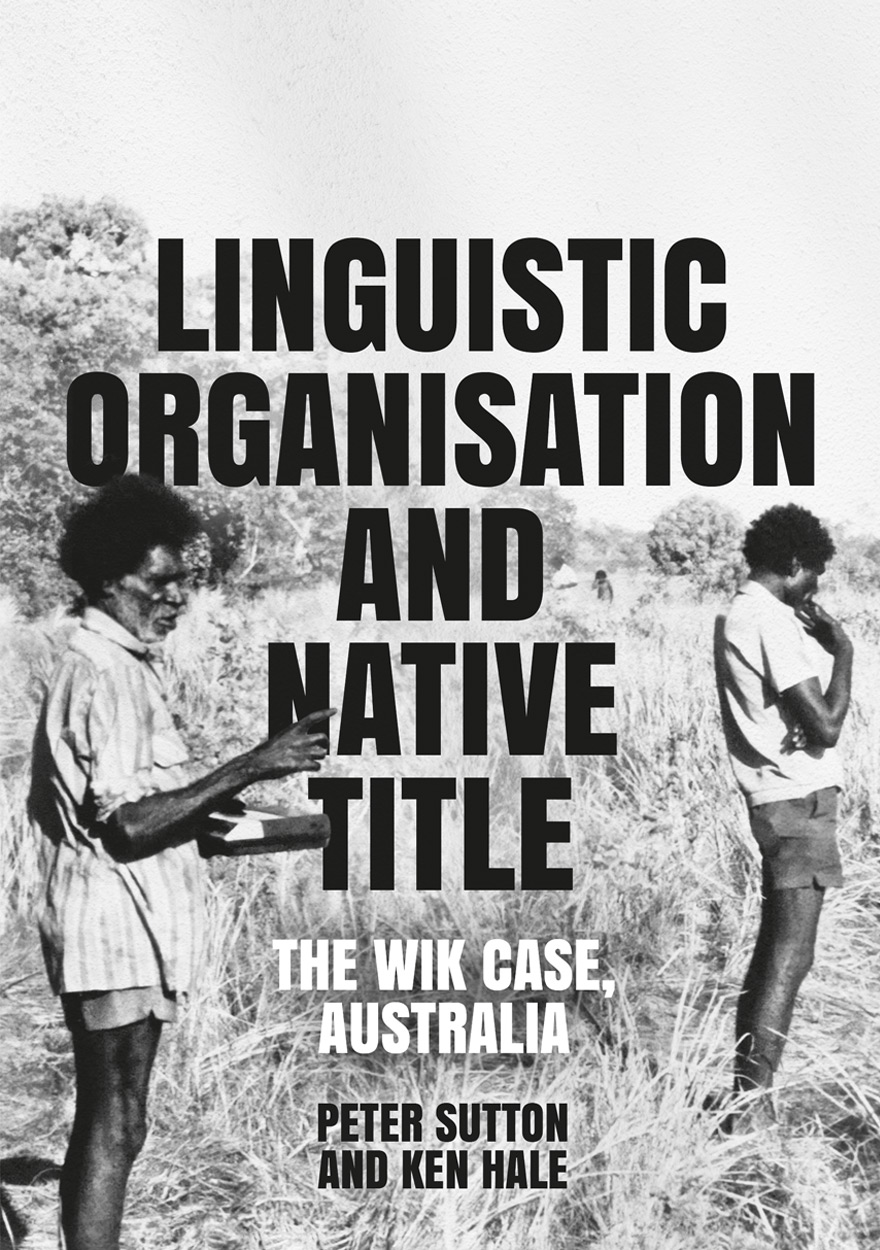Search titles
Displaying results 61 to 70 of 557.

Wives and Wanderers in a New Guinea Highlands Society »
Women’s lives in the Wahgi Valley
Authored by: Marie Olive Reay
Publication date: January 2022
Wives and Wanderers in a New Guinea Highlands Society brings to the reader anthropologist Marie Reay’s field research from the 1950s and 1960s on women’s lives in the Wahgi Valley, Central Highlands of Papua New Guinea. Dramatically written, each chapter adds to the main story that Reay wanted to tell, contrasting young girls’ freedom to court and choose partners, with the constraints (and violence) they were to experience as married women.
This volume provides readable ethnographic material for undergraduate courses, in whole or in part. It will be of interest to students and scholars of gender relations, anthropology and feminism, Melanesia and the Pacific. The material in this book, which Reay had written by 1965 but never published, remains startlingly contemporary and relevant.
Marie Olive Reay was a social anthropologist who did research in Australian Indigenous communities and in the Wahgi Valley in the Central Highlands of Papua New Guinea. Employed at The Australian National University from 1959 to 1988 when she retired, Reay passed away in 2004. In 2011 this manuscript was found in her personal papers, reconstructed and edited by Francesca Merlan, augmented here by an additional introduction by eminent anthropologist of the Highlands, and of gender, Marilyn Strathern.
Had this manuscript appeared when Reay apparently completed it in its present form – around 1965 – it would have been the first published ethnography of women’s lives in the Central Highlands of Papua New Guinea. Its retrieval from Reay’s papers, and availability now, adds a new dimension to works on gender relations in Melanesian societies, and to the history of Australian and Pacific anthropology.

Lilith: A Feminist History Journal: Number 27 »
Publication date: December 2021
This year’s issue covers a rich variety of topics in feminist history, including: the role of place and space in feminist and lesbian identity-making in 1970s’ Melbourne; a decolonising approach to writing the history of women and children in Alice Springs; the importance of recipe exchange in kinship networks in seventeenth-century Ireland; an examination of the life of twentieth-century poet’s muse Katie Anna Lush; the political theatre employed by the Australian Women’s Movement Against Socialism in the 1940s; the targeting of wine advertisements at Australian women in the 1950s and 1960s; and an exploration of the processes of power within natural history societies in nineteenth-century South Australia. There are also two articles that form a special section on the topic of the female frame, one on the role of uniforms for women workers in the transport industry, and the other comparing archetypes of the infanticidal mother in fin-de-siècle Australian and France.
Download for free
Not available for purchase

Agenda - A Journal of Policy Analysis and Reform: Volume 28, Number 1, 2021 »
Edited by: William Coleman
Publication date: December 2021
Agenda is a refereed, ECONLIT-indexed and RePEc-listed journal of the College of Business and Economics, The Australian National University. Launched in 1994, Agenda provides a forum for debate on public policy, mainly (but not exclusively) in Australia and New Zealand. It deals largely with economic issues but gives space to social and legal policy and also to the moral and philosophical foundations and implications of policy.
Subscribe to the Agenda Alerting service if you wish to be advised on forthcoming or new issues.
Download for free
Not available for purchase

Fighting Australia’s Cold War »
The Nexus of Strategy and Operations in a Multipolar Asia, 1945–1965
Edited by: Peter Dean, Tristan Moss
Publication date: 2021
In the first two decades of the Cold War, Australia fought in three conflicts and prepared to fight in a possible wider conflagration in Southeast Asia and the Pacific. In Korea, Malaya and Borneo, Australian forces encountered new types of warfare, integrated new equipment and ideas, and were part of the longest continual overseas deployments in Australia’s history. Working closely with its allies, Australia also trained for a large conventional war in Southeast Asia, while a significant percentage of the defence force guarded the Papua New Guinea–Indonesian border. At home, the Defence organisation grappled with new threats and military expansion, while the Australian Security Intelligence Organisation defended the nation from domestic and foreign threats. This book examines this crucial part of Australia’s security history, so often overlooked as merely a precursor to the Vietnam War. It addresses key questions such as how did Australia achieve its security goals at home and in the region in this new Cold War environment? What were the experiences of the services, units and individuals serving in Southeast Asia? How did this period shape Australia’s defence for years to come?

International Review of Environmental History: Volume 7, Issue 2, 2021 »
Edited by: James Beattie
Publication date: November 2021
The second issue of International Review of Environmental History for 2021 features contributions on limpets and global environmental history, US bird conservation, soyabean agriculture in South America, settler environmental change in Aotearoa New Zealand, woodlands, communities and ecologies in Australia, and irrigation and agriculture in Australia.
Download for free
Not available for purchase

The Genesis of a Policy »
Defining and Defending Australia's National Interest in the Asia-Pacific, 1921–57
Authored by: Honae Cuffe
Publication date: November 2021
The years 1921–57 marked a period of immense upheaval for Australia as the nation navigated economic crises, the threat of aggressive Japanese expansion and shifting power distributions with the world transitioning from British leadership to that of the US. This book offers a reassessment of Australia’s foreign policy origins and maturation during these tumultuous years. Successive Australian governments carefully observed these global and regional forces. The policy that developed in response was an integrated one—that is, one that sought to balance Australia’s particular geopolitical circumstances with great power relationships and, in assessing the value of these relationships, ensure that the nation’s trade, security and diplomatic interests were served.
Amid the economic and strategic uncertainty of the interwar years, the Australian government acknowledged the shifting power distributions in the global and Asia-Pacific orders and that neither the policies of Britain nor the US completely served the national interest. The nation, accordingly, sought to intervene within the policies of the great powers to ensure its particular interests were secured. This geopolitically informed, interventionist approach, which had its genesis in the 1930s, is traced throughout the 1940s and 1950s, highlighting Australia’s gradual and uneven transition from the British world order to that of the US and the frank assessments made about which relationship best served Australia’s interests.
The Genesis of a Policy identifies a comprehensive and pragmatic approach—albeit not always effectively executed—in Australian foreign policy tradition that has not been previously examined.

History Wars »
The Peter Ryan – Manning Clark Controversy
Authored by: Doug Munro
Publication date: October 2021
‘In 1993, Manning Clark came under severe (posthumous) attack in the pages of Quadrant by none other than Peter Ryan, who had published five of the six volumes of Clark’s epic A History of Australia. In applying what he called “an overdue axe to a tall poppy”, Ryan lambasted the History as “an imposition on Australian credulity” and declared its author a fraud, both as a historian and a person. This unprecedented public assault by a publisher on his best-selling author was a sensation at the time and remains lodged in the public memory. In History Wars, Doug Munro forensically examines the right and wrongs of Ryan’s allegations, concluding that Clark was more sinned against than sinning and that Ryan repeatedly misrepresented the situation. More than just telling a story, Munro places the Ryan-Clark controversy within the context of Australia’s History Wars. This book is an illuminating saga of that ongoing contest.’
— James Curran, University of Sydney
‘The Ryan-Clark controversy … speaks to the place of Manning Clark in Australia’s national imagination. Had Ryan taken his axe to another historian, it’s unlikely that we would be still talking about it 30 years later. But Clark was the author and keeper of Australia’s national story, however imperfect his scholarship and however blinkered that story. Few, if any, historians in the Anglo-American world have occupied the space that Clark occupied by dint of will, force of personality, and felicity of pen.’
— Donald Wright, University of New Brunswick

Power and Dysfunction »
The New South Wales Board for the Protection of Aborigines 1883–1940
Authored by: Richard Egan
Publication date: October 2021
In 1883, the New South Wales Board for the Protection of Aborigines was tasked with assisting and supporting an Aboriginal population that had been devastated by a brutal dispossession. It began its tenure with little government direction – its initial approach was cautious and reactionary. However, by the turn of the century this Board, driven by some forceful individuals, was squarely focused on a legislative agenda that sought policies to control, segregate and expel Aboriginal people. Over time it acquired extraordinary powers to control Aboriginal movement, remove children from their communities and send them into domestic service, collect wages and hold them in trust, withhold rations, expel individuals from stations and reserves, authorise medical inspections, and prevent any Aboriginal person from leaving the state.
Power and Dysfunction explores this Board and uncovers who were the major drivers of these policies, who were its most influential people, and how this body came to wield so much power. Paradoxically, despite its considerable influence, through its bravado, structural dysfunction, flawed policies and general indifference, it failed to manage core aspects of Aboriginal policy. In the 1930s, when the Board was finally challenged by Aboriginal and non-Aboriginal groups seeking its abolition, it had become moribund, paranoid and secretive as it railed against all detractors.
When it was finally disbanded in 1940, its 57-year legacy had touched every Aboriginal community in New South Wales with lasting consequences that still resonate today.

Leading from the North »
Rethinking Northern Australia Development
Edited by: Ruth Wallace, Sharon Harwood, Rolf Gerritsen, Bruce Prideaux, Tom Brewer, Linda Rosenman, Allan Dale
Publication date: September 2021
Leading from the North aims to improve public dialogue around the future of Northern Australia to underpin robust and flexible planning and policy frameworks. A number of areas are addressed including social infrastructure, governance systems, economic, business and regional development, climate and its implications, the roles and trends in demography and migration in the region.
This book not only speaks to the issues of development in Northern Australia but also other regional areas, and examines opportunities for growth with changing economies and technologies.
The authors of this book consist of leading researchers, academics and experts from Charles Darwin University, The Australian National University, James Cook University, the Australian Institute of Marine Science and many other collaborative partners.
Many of the authors have first-hand experience of living and working in Northern Australia. They understand the real issues and challenges faced by people living in Northern Australia and other similar regional areas. Backed by their expertise and experience, the authors present their discussions and findings from a local perspective.

Linguistic Organisation and Native Title »
The Wik Case, Australia
Authored by: Peter Sutton, Kenneth Locke Hale
Publication date: September 2021
Classical Aboriginal societies in Australia have commonly been described in terms of social organisation and local organisation. This book presents rich detail on a third and related domain that has not been given the same kind of attention: linguistic organisation.
Basing their analyses on fieldwork among the Wik peoples of Cape York Peninsula, north Australia, Peter Sutton and Ken Hale show how cosmology, linguistic variation, language prehistory, clan totemic identities, geopolitics, land use and land ownership created a vibrant linguistic organisation in a classical Aboriginal society.
This has been a society long in love with language and languages. Its people have richly imbued the domain of rights and interests in country—the foundations of their native title as recognised in Australian law—with rights and interests in the abundance of languages and dialects given to them at the start of the world.



